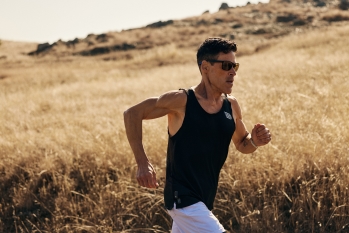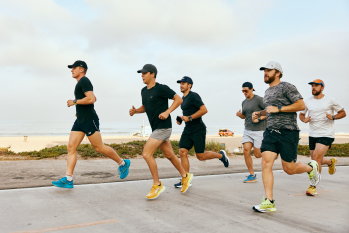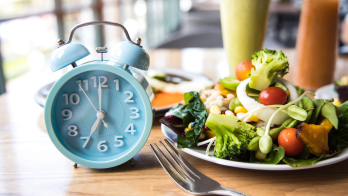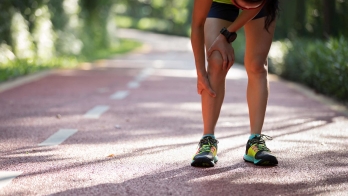Should you eat before a morning run?
You’ve heard time and time again that breakfast is the most important meal of the day. From giving your metabolism a boost to improving focus and mood, science suggests a morning meal can have significant benefits, and might just make you a faster runner, too.
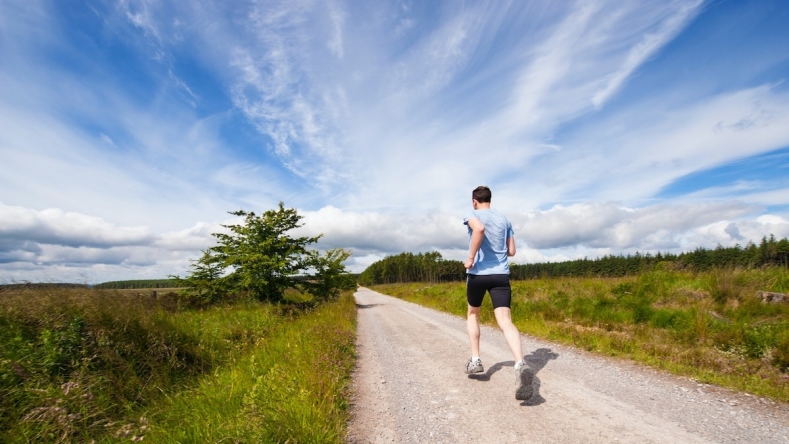
Everyone has their own pre-run routine. Some people will tell you that they never eat before a morning run, while others swear by their pre-run snack. The truth is that if performance is your goal, a little pre-run fuel can be helpful. Here’s why according to science:
Why carbs count for runners
Before we dive into why breakfast can improve running performance, it’s important to know what types of fuel can have the most impact.
When it comes to running — an activity that requires significant oxygen and energy production — carbohydrates are the body’s preferred form of fuel. This is because carbohydrates produce energy faster, more efficiently, and use less oxygen than fat [1, 2].
Research also shows carbohydrate consumption before exercise increases the rate at which the body burns carbohydrates during exercise [1]. Carbs are a crucial energy source for runners because the more energy you have to burn and oxygen you have to breathe, the faster you will be able to move.
How breakfast can make you faster
When you wake up in the morning after a solid night of slumber, your body’s carbohydrate stores (also known as glycogen) are low. Unlike fat stores, glycogen stores are limited in size and quickly become depleted during even short fasting periods. If you think of your glycogen stores as a gas tank, you’re quite literally running on fumes when you first wake up.
By eating breakfast, you begin to replenish those glycogen stores and also give muscles the quick energy they need to perform fast and efficiently. In fact, one study showed that filling up on a high-carbohydrate breakfast well before an endurance run can increase exercise capacity by 9% compared to a fasted run [1,3].
Training in a fasted state may lead to some metabolic adaptations that may enhance the cellular function of endurance training; however, research shows it does not lead to performance improvements and impairs training intensity and duration [4,5]. Without breakfast, the body will turn to fat to fuel your morning run, costing you speed and slowing recovery.
Simple breakfast ideas for runners
Now that you know the potential benefits of a morning meal, how about some quick and easy breakfast ideas to fuel your next run?
If you’re heading out the door in under an hour (ideally at least 30 minutes before), keep portions small and consume more simple carbs, which are lower in fiber and more easily digested. Some good options include:
Half of a bagel, a slice of toast, or an English muffin with jelly
Whole food granola or snack bar
1-2 small pancakes or a waffle topped with a little peanut butter
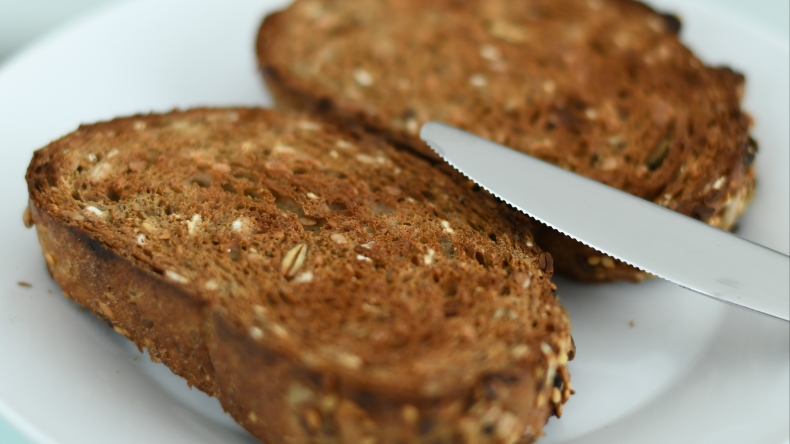
If you’ve got one hour or more before your run, you might want to consider a slightly more substantial breakfast. Just don’t overdo it on fat and fiber, which can lead to stomach upset. Some delicious ideas include:
Oatmeal made with your milk of choice, topped with a sprinkle of hemp seeds and fresh berries
A bowl of yogurt layered with granola and fresh fruit
A hearty slice of avocado toast topped with an egg
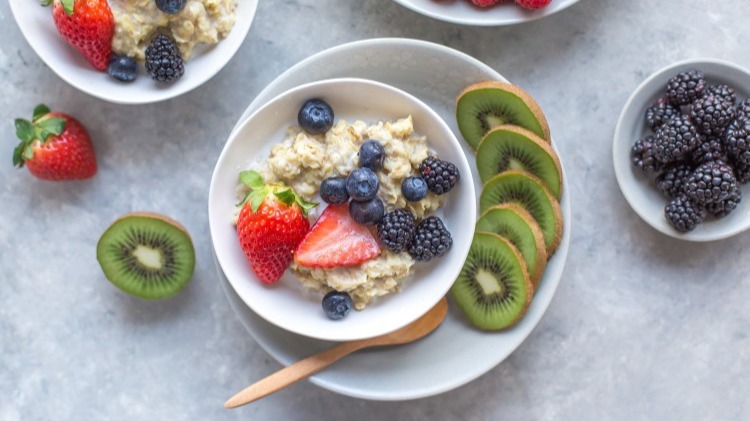
Whatever your pre-morning run ritual looks like today, if you want to run your best in the morning, consider having a light, carbohydrate-rich breakfast 30-60 minutes before heading out the door.
Disclaimer: The text, images, videos, and other media on this page are provided for informational purposes only and are not intended to treat, diagnose or replace personalized medical care.
Key Takeaways
Carbohydrate consumption before exercise increases the rate at which the body burns carbs during exercise [1].
Carbs are a crucial energy source for runners because the more energy you have to burn and oxygen you have to breathe, the faster you will be able to move.
Filling up on a high-carbohydrate breakfast well before an endurance run can increase exercise capacity by 9% compared to a fasted run [1,3].
30 minutes before a run, eat more simple carbs (such as half a bagel or a granola bar) which are lower in fiber and more easily digested.
One hour or more before your run, consider eating a slightly more substantial breakfast (such as oatmeal or avocado toast).
References
Spriet, L. L. (2014). New Insights into the Interaction of Carbohydrate and Fat Metabolism During Exercise. Sports Medicine, 44(S1), 87–96. https://doi.org/10.1007/s40279-014-0154-1
Cole, M., Coleman, D., Hopker, J., & Wiles, J. (2013). Improved Gross Efficiency during Long Duration Submaximal Cycling Following a Short-term High Carbohydrate Diet. International Journal of Sports Medicine, 35(03), 265–269. https://doi.org/10.1055/s-0033-1348254
Edinburgh, R. M., Hengist, A., Smith, H. A., Travers, R. L., Koumanov, F., Betts, J. A., Thompson, D., Walhin, J.-P., Wallis, G. A., Hamilton, D. L., Stevenson, E. J., Tipton, K. D., & Gonzalez, J. T. (2018). Preexercise breakfast ingestion versus extended overnight fasting increases postprandial glucose flux after exercise in healthy men. American Journal of Physiology-Endocrinology and Metabolism, 315(5), E1062–E1074. https://doi.org/10.1152/ajpendo.00163.2018
Chryssanthopoulos, C., Williams, C., Nowitz, A., Kotsiopoulou, C., & Vleck, V. (2002). The effect of a high carbohydrate meal on endurance running capacity. International journal of sport nutrition and exercise metabolism, 12(2), 157–171. https://doi.org/10.1123/ijsnem.12.2.157
Thomas, D. T., Erdman, K. A., & Burke, L. M. (2016). Position of the Academy of Nutrition and Dietetics, Dietitians of Canada, and the American College of Sports Medicine: Nutrition and Athletic Performance. Journal of the Academy of Nutrition and Dietetics, 116(3), 501–528. https://doi.org/10.1016/j.jand.2015.12.006

